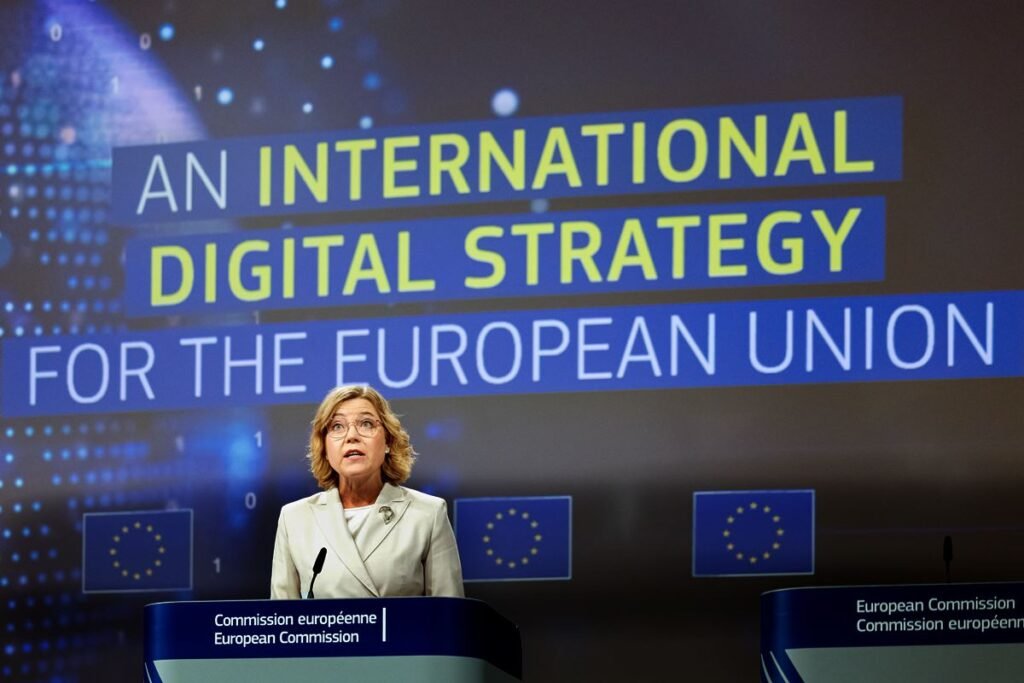The EU has set out a new International Digital Strategy to show the EU as a stable and reliable partner which is open to digital cooperation with allies and partners.

The Strategy, which reaffirms the EU’s commitment to building a rules-based global digital order, in line with its fundamental values, has the following objectives:
- To expand international partnerships, by deepening existing Digital Partnerships and Dialogues, establishing new ones, and fostering collaboration through a new Digital Partnership Network, the EU will strengthen its tech competitiveness and security as well as that of its partners.
- To deploy an EU Tech Business Offer, by combining EU private and public sector investments to support the digital transition of partner countries, incorporating components such as AI Factories, investments in secure and trusted connectivity, Digital Public Infrastructure, cybersecurity, and more.
- To strengthen global digital governance, by promoting a rules-based global digital order, in line with the EU’s fundamental values.
The EU has maintained a longstanding cooperation on digital priorities with countries around the world, notably via Trade and Technology Councils, Digital Partnerships and several Digital and Cyber Dialogues, as well as Digital Trade Agreements.
“In the EU, we have a lot of expertise and solutions to offer and a strong political will to boost tech innovation and security in the EU and for our allies and partners,” said EC vice-president Henna Virkkunen: “Today, we are taking a decisive step forward in strengthening our current collaborations, and seeking new partners.”
Cooperation with partner countries will focus on the following priority areas:
- Secure and trusted digital infrastructure, essential to enable developments in critical sectors such as energy, transport, finance and health.
- Emerging technologies, such as AI, 5G/6G, semiconductors, and quantum technologies.
- Digital governance that fosters social cohesion, protects human rights and democratic principles.
- Cybersecurity, to strengthen the cyber defence of our partner countries as a direct investment in the EU’s own security.
- Digital identities and Digital Public Infrastructure, towards mutual recognition arrangements with key partner that can simplify cross-border business and facilitate citizens’ mobility.
- Online platforms to continue promoting protection of children online, freedom of speech, democracy and citizens’ privacy.
The Commission and the EU foreign policy chief Kaja Kallas will present the proposals in a series of events immediately after adoption, with a view to begin implementing the actions laid out in the joint communication as soon as possible.